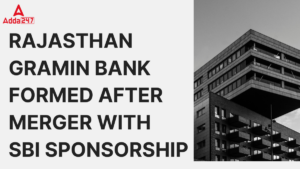Table of Contents
Ethics in Bank and Financial Institutions Notes: JAIIB Exam 2022 has three papers: Principles & Practices of Banking, Accounting & Finance for Bankers, and Legal & Regulatory Aspects of Banking. Paper 1(Principles and Practices of Banking) has five modules and here we have provided the notes of the fifth module, Ethics in Bank and Financial Institutions. Ethics in Bank and Financial Institution Notes will be beneficial for the aspirants and will surely help them to score better in their upcoming JAIIB Exam. Candidates can refer to these notes as their study material or can take an idea from it while preparing their own notes.
Ethics in Bank and Financial Institutions Unit 1:Ethics, Business Ethics and Banking, An Integrated Perspective
Ethics is derived from the Greek Word “Ethos” which means “way of living”. Ethics is the branch of philosophy that deals with human conduct values. The rightness and Wrongness of some actions and the goodness and badness of their result are dealt with in Human Conduct. It is the subject of social science that is concerned with moral principles and social values. In Ethics we mainly study Right and Wrong. The Moral Choices made by the people and all the methods used to give justification is studied under Ethics. Judgments such as good and bad, right and wrong is mentioned in Ethics. Ethics can be distinguished from “morals”, which are rules or duties that govern our behavior as persons to persons (such as “do not tell lies” or “do not hurt another person”) and “values”, which are ends or goals sought by individuals (such as health or happiness).
Ethical theories is divided in to three main categories: Virtue Ethics, Consequentialist and Deontology. The difference between Consequentialist and Deontology is based on the way they define the meaning, objective and principles of morality, for instance, consequentialist theories determine the ethics of an act by looking at the consequences of decision in the end while Deontology theories determine the ethics of an act by looking at the means of duty and the process of the decision.
Consequentialist Ethical System: The Structure of the Consequentialist Ethical System is build by: Principle of Utility, Psychological Hedonism, Types of Utilitarianism: Act Based, Rule Based, and Preference Based and Quantitative and Qualitative Desire of Pleasure.
Utilitarianism: Utilitarianism is a group of normal ethical theories that specify actions and for all affected individuals these actions maximize happiness and well-being. On the basis of Utilitarianism Ethical Principle should be practical, work for the general maximization of good and quality of goods should be given Importance.
Deontological Ethical System
The key points, which actually build the structure of deontological (Kantian) ethical system, are as follows:
- Reason: Theoretical and Practical Reason
- Apriority: Necessity and Universality
- Imperative: Categorical and Hypothetical, Supreme Moral Principle
- Good Will: Duty and Inclination
- Phenomenal World and Noumenal World
Based on the Kantian account we can extract some important features for a standpoint, as follows:
- An ethical principle should be based on objective and rational reasons
- An ethical principle should provide freedom to agent to perform the actions
- An ethical principle should treat humanity (society) as well as environment as ends in themselves
Business Ethics:
‘Business Ethics’ can be termed as a study of proper business policies and practices regarding potentially controversial issues, such as corporate governance, insider trading, bribery, discrimination, corporate social responsibility, and fiduciary responsibilities.
Businesses must abide by some basic principles. It should provide quality goods and services at reasonable prices to their consumers. It must also avoid adulteration, misleading advertisements, and other unfair malpractices.
A business must also perform other duties such as distributing fair wages, providing good working conditions, not exploiting the workers, encouraging competition, etc.
Definition of Business Ethics
There are many definitions of business ethics, but the ones given by Andrew Crane and Raymond C. Baumhart are considered the most appropriate ones.
According to Crane, “Business ethics is the study of business situations, activities, and decisions where issues of right and wrong are addressed.”
Baumhart defines, “The ethics of business is the ethics of responsibility. The business man must promise that he will not harm knowingly.”
Business ethics/corporate ethics are practically concerned with the entire gamut of functions of an organization which scrutinizes and sets the codes related to the moral/ethical principle to find the solutions to the problems faced by an employee in specific and the organization in general.
Business ethics are related to-
- morally right and wrong behavior,
- in the business context,
- including questions of fairness, justice, and equity,
- that which require application of moral standards by persons in the organizations
- the moral standards that are not separate, but derived from society
Features of Business Ethics:
There are eight major features of business ethics:
- Code of Conduct: Business ethics is actually a form of codes of conduct. It lets us know what to do and what not to do. Businesses must follow this code of conduct.
- Based on Moral and Social Values: Business ethics is a subject that is based on moral and social values. It offers some moral and social principles (rules) for conducting a business.
- Protection to Social Groups: Business ethics protect various social groups including consumers, employees, small businesspersons, government, shareholders, creditors, etc.
- Offers a Basic Framework: Business ethics is the basic framework for doing business properly. It constructs the social, cultural, legal, economic, and other limits in which a business must operate.
- Voluntary: Business ethics is meant to be voluntary. It should be self-practiced and must not be enforced by law.
- Requires Education & Guidance: Businessmen should get proper education and guidance about business ethics. Trade Associations and Chambers of Commerce should be active enough in this matter.
- Relative Term: Business ethics is a relative term. It changes from one business to another and from one country to another.
- New Concept: Business ethics is a relatively newer concept. Developed countries have more exposure to business ethics, while poor and developing countries are relatively backward in applying the principles of business ethics.
Principles of Business Ethics:
The principles of business ethics are related to social groups that comprise of consumers, employees, investors, and the local community. The important rules or principles of business ethics are as follows:
- Avoid Exploitation of Consumers: Do not cheat and exploit consumer with measures such as artificial price rise and adulteration.
- Avoid Profiteering: Unscrupulous business activities such as hoarding, black marketing, selling banned or harmful goods to earn exorbitant profits must be avoided.
- Encourage Healthy Competition: A healthy competitive atmosphere that offers certain benefits to the consumers must be encouraged.
- Ensure Accuracy: Accuracy in weighing, packaging and quality of supplying goods to the consumers has to be followed.
- Pay Taxes Regularly: Taxes and other duties to the government must be honestly and regularly paid.
- Get the Accounts Audited: Proper business records, accounts must be managed. All authorized persons and authorities should have access to these details.
- Fair Treatment to Employees: Fair wages or salaries, facilities and incentives must be provided to the employees.
- Keep the Investors Informed: The shareholders and investors must know about the financial and other important decisions of the company.
- Avoid Injustice and Discrimination: Avoid all types of injustice and partiality to employees. Discrimination based on gender, race, religion, language, nationality, etc. should be avoided.
- No Bribe and Corruption: Do not give expensive gifts, commissions and payoffs to people having influence.
- Discourage Secret Agreement: Making secret agreements with other business people to influence production, distribution, pricing etc. are unethical.
- Service before Profit: Accept the principle of “service first and profit next.”
- Practice Fair Business: Businesses should be fair, humane, efficient and dynamic to offer certain benefits to consumers.
- Avoid Monopoly: No private monopolies and concentration of economic power should be practiced.
- Fulfil Customers’ Expectations: Adjust your business activities as per the demands, needs and expectations of the customers.
- Respect Consumers Rights: Honour the basic rights of the consumers.
- Accept Social Responsibilities: Honour responsibilities towards the society.
- Satisfy Consumers’ Wants: Satisfy the wants of the consumers as the main objective of the business is to satisfy the consumer’s wants. All business operations must have this aim.
- Service Motive: Service and consumer’s satisfaction should get more attention than profit-maximization.
- Optimum Utilization of Resources: Ensure optimum utilization of resources to remove poverty and to increase the standard of living of people.
- Intentions of Business: Use permitted legal and sacred means to do business. Avoid Illegal, unscrupulous and evil means.
Woodrow Wilson’s rules: Business Ethics has four important Principles, which are:
- Rule of publicity: The business should inform the people clearly that what it is tending to do.
- Rule of equivalent price: The customer should get proper value for their money. Below standard, outdated and inferior goods should not be sold at high prices.
- Rule of conscience in business: The businesspersons must have conscience while doing business, i.e. a morale sense of judging what is right and what is wrong.
- Rule of spirit of service: The business must give importance to the service motive.
Ethics in Bank and Financial Institutions Unit 2:Ethics at the Individual Level
When an individual behaves in a particular manner that is only possible because of Values. The judgement that an individual makes in his life on the basis of his own Beliefs and Principles is called Value. The Standard of one’s behavior is only because of Values. Values can be personal values, Cultural values and Corporate Values. The priorities in our life are set according to our values. The reason behind the choices we make reflects what is more important for us. If you understand the values of an individual, then you can easily identify what is important for them.
Norms: Norms are the expectations of proper behavior and not the requirements of that behavior. The ways an individual expects all the people to act in a given
situation are called the norms. Norma are inconsistent but universal in nature. They are not published, therefore some people may not obey.
Beliefs: In the code of ethics Beliefs are the standard of thoughts.
Beliefs are difficult to describe.
Values, Norms and Beliefs have their own important role in the Management.
A corporate culture has a set of values, beliefs, norms and goals and have different ways of solving problems, which are shared by the employees of that particular organization.
Ethics in Bank and Financial Institutions Unit 3:Ethical Behavior at the Workplace
The workers must have some common attributes to follow in a workplace and be moral. Some of the common attributes are:
- Dedication
- Integrity
- Accountability
- Collaboration
- Conduct
- Being A Better Worker
- Trusting Relationships
- Team Cohesiveness
- Value to Employers
- Personal Wellness
- Core Values
- Wisdom and Knowledge
- Self Control
- Justice and Fair Guidance
- Transcendence
- Love and Kindness
Related Posts:
Ethics in Bank and Financial Institutions Unit 4:Ethical Dimensions, Employees
Bankers enjoy the following rights for fulfilling the commitments made to the customers.
Right of General Lien: A general lien authorizes the bank to retain securities till all the claims of the bank against the customer are fulfilled. A lien is given hints such that if a default is made by the debtor, the bank, by giving a reasonable notice to the borrower, can sell and recover the amount that is due. Any valuables like as cash kept in lockers or fixed deposits etc. cannot be set off against the claim.
Right to charge interest and commission: Bank has put on right to charge interest on
loans and advances and commission on services provided to the customer.
Closure of Account: The Bank has also the right to close the account of a customer if it is not in operation for a specific duration, provided the bank has informed the customer to respond within a given time.
Ethics in Bank and Financial Institutions Unit 5:Work Ethics and the Workplace
Work Ethic Term was first invented by Max Weber in 1904. Work Ethics can be defined as a set of values that is based on moral virtues of hard work and diligence. The ten characteristics of Work Ethic are: Appearance, Attendance, Attitude, Character, Communication, Cooperation, Organizational Skills, Productivity, Respect and Teamwork. The 5 Most Important Work Ethics include Integrity, Honesty, Discipline, Respect and Responsibility.
Ethics in Bank and Financial Institutions Unit 6: Banking Ethics, Changing Dynamics
To meet today’s competition, challenges of the technology and the demands of the end user the Banking Industry is going through a rapid change. Technology is the main differentiator. Banks need to look at innovations not just for
product but for processes also. Technology is not only changing the environment but also the relationship with customers. The barriers has been broken by Technology and has also brought about superior products and channels. Through this customer relationship has come under focus. It is also seen as an instrument of cost reduction and effective communication with people and institutions associated with the banking business. The RBI has allotted priority to the upgradation of technological infrastructure in financial system. Technology has opened new
products and services, new market and efficient delivery channels for banking industry. IT also provides the framework for banking industry to meet challenges in the present competitive environment. IT enables to cut the cost of global fund transfer.
FAQs: Ethics in Bank and Financial Institutions
Q.1 What are the 10 characteristics of Work Ethics?
Ans. The 10 characteristics of Work Ethics are: Appearance, Attendance, Attitude, Character, Communication, Cooperation, Organizational Skills, Productivity, Respect and Teamwork
Q.2 How many units are there in Ethics in Bank and Financial Institutions?
Ans. There are 6 Units in Ethics in Bank and Financial Institutions.






 GA Capsule for SBI Clerk Mains 2025, Dow...
GA Capsule for SBI Clerk Mains 2025, Dow...
 The Hindu Review October 2022: Download ...
The Hindu Review October 2022: Download ...
 Rajasthan Gramin Bank Formed after Merge...
Rajasthan Gramin Bank Formed after Merge...





